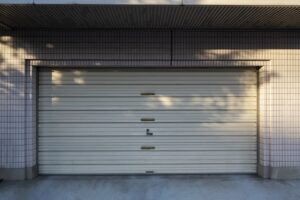If you’re wondering whether installing solar panels is a good idea, you’ll want to read on to discover more about this topic. You’ll learn more about the price of installing solar panels, how long it will take for your investment to pay for itself, and whether you can reduce your energy costs.
Table of Contents
If You Shouldn’t Get Solar Panels
The benefits of solar panels can be substantial. Not only do they save money on utility bills, but they also add value to your home. And since they can be installed on your roof, you can enjoy the sun all year round.
Be sure to weigh all the advantages and disadvantages before investing your hard-earned money. First off, the technology could be better. Your best bet is to choose a qualified installer, like Solar by Peak to Peak, to ensure your solar panels perform as advertised. You can look at your local utility provider to see if they offer incentives to encourage homeowners to install solar power systems.
Your state may or may not have a renewable energy law, depending on where you live. A state representative has been pushing for a state-wide law to encourage homeowners to convert their homes to solar energy.
Tax Credits For Installing Solar Power
Solar power systems, like those from Solar by Peak to Peak, can reduce your electric bill, and many incentives are available to help you install them. Before you spend any money on solar, it’s essential to understand the potential benefits and tax liability.
The federal solar tax credit is one incentive you can take advantage of, but you can also apply for other incentives. For instance, some states offer upfront rebates. However, it would help if you acted quickly to ensure you don’t miss out on any of these.
You should register with your state authority when you get a solar system. They’ll track your system’s energy and let you know if your solar project qualifies for a tax credit.
If you’re eligible, you can claim the federal ITC, which is 30% of the cost of your solar system. You must own the system, so you won’t receive the credit if you lease or buy it.
Cost Of Solar Panels
The cost of installing solar panels is dependent upon several factors. The most obvious is the size of the system you want to install. Also, the type of panel you select can affect the final cost of the installation.
Some states offer incentives for solar energy. New York provides a state tax credit of 25% of the total installation costs up to $5,000. It’s also worth checking with your local utility provider since some may offer solar rebates.
The panel’s quality is another thing to take into account. There are many types, but the best are monocrystalline. This is because monocrystalline panels can last a long time in some applications. They are more efficient than polycrystalline.
If you have the money, buying bulk is a great way to reduce the system’s price per unit. However, if you don’t have enough to buy all the components outright, you should consider leasing them.
The Payback Period For Solar Panels
When it comes to solar panel payback, there are a lot of factors to consider. Whether you are considering a solar system for your home or business, it is essential to understand the financial benefits. After all, you don’t want to make an investment that doesn’t give you any savings.
The typical solar panel pays back in around 8 years in the United states. Your payback period could be shorter or longer, depending on your location and other factors.
To calculate your payback period, you need to know how much you’ll save on monthly energy bills. You can do this by subtracting the cost of the solar panels, the cost of installing the solar panels, and the tax incentives. If you are interested in solar energy, you should also be aware of the many programs available to reduce the cost of a solar system by up to 50%.
Tiered Pricing Plans Affect The Price Of Electricity
When installing solar, understanding the utility rate structure can help you decide the optimal size of your installation. For some customers, it may be cheaper to go with a more minor solar system. While other homeowners may be better off staying on the traditional tiered-rate structure.
Several utilities offer a time of use (TOU) rates, which incentivize energy consumption during specific hours. This can benefit solar consumers by offsetting the higher tiers of electricity usage. The prices of TOU rates vary depending on the time of day. However, the cost of this plan is more than the traditional tiered-rate structure.
Residential customers can switch from a time-of-use rate plan to a tiered-rate plan, but it is not required. Existing customers are grandfathered into the legacy plan. If you wish to switch, you can contact your retailer.




